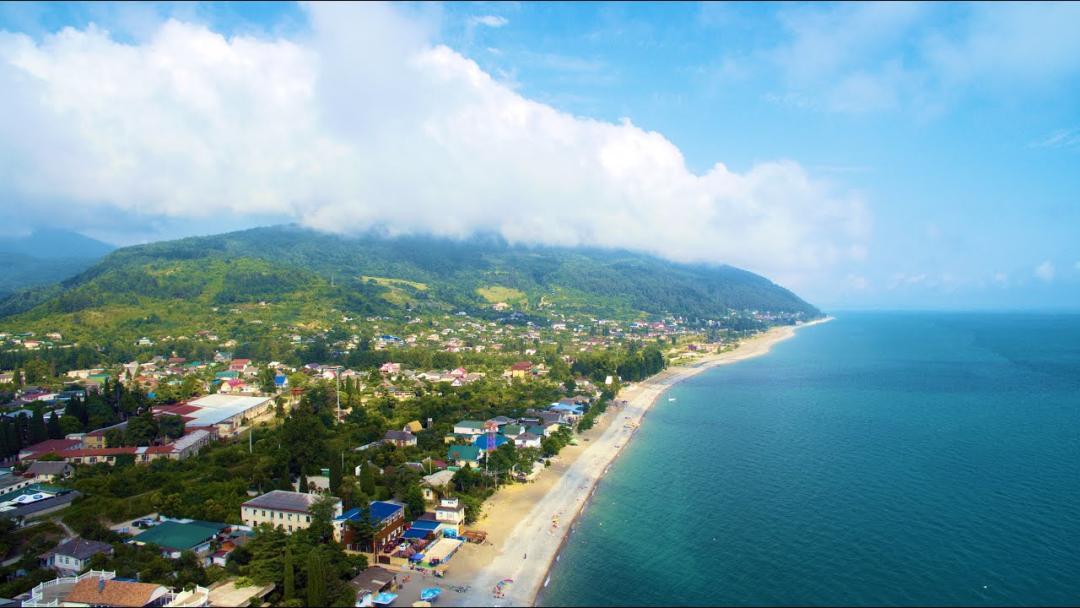
Presidential elections in separatist Abkhazia held despite coronavirus pandemic

On 22 March, presidential elections were held in Georgia’s breakaway region of Abkhazia. The opposition candidate Aslan Bzhania won with 56% of the votes in a three-man race, which also included the de facto Minister of Economy Adgur Ardzinba (35%) and the former de facto Minister of the Interior Leonid Dzapshba (2%).
The foreign monitoring of the elections was limited because of coronavirus-related travel restrictions. A delegation of Russian officials who were supposed to observe the elections didn’t come. Eight officials from Russia’s embassy in the territory ended up taking their place. Observers from Abkhazia’s fellow Russia-backed unrecognized republics Tskhinvali (South Ossetia) and Transnistria also came.
On 9 January 2020, Abkhazia’s former de facto President Raul Khajimba was forced to resign from his post after thousands of people stormed the presidential palace and demanded his resignation. This occurred after a high-profile triple murder in a popular restaurant in the center of Sukhumi, which was carried by members of Khajimba’s guards. The de facto Supreme Court of Abkhazia declared the presidential elections from 8 September null and void.
Georgia’s Ministry of Foreign Affairs condemned the elections. “These so-called elections are illegal and cannot have any legal effect, while half a million of internally displaced persons and refugees expelled from Abkhazia region as a result of several waves of ethnic cleansing are still deprived of the possibility to return to their homes, and the Russian occupying power exercises full effective control on the ground. The so-called elections represent yet another futile attempt to legitimize the ethnic cleansing, the ongoing illegal occupation and factual annexation process in Abkhazia region. The Ministry of Foreign Affairs of Georgia also appeals to the international community to give a due assessment and take effective measures to counter the illegal processes taking place in the occupied territories,“ read the statement of Georgia’s MFA.
The European Union (EU) also released a statement in regard to the elections. “The European Union supports the territorial integrity and sovereignty of Georgia, as recognised by international law. With regard to the so-called presidential elections that took place in the Georgian breakaway region of Abkhazia on 22 March 2020, we recall that the European Union does not recognise the constitutional and legal framework in which they took place,” read the statement.
NATO also gave a public statement in regard to the elections. “NATO does not recognize the so-called elections in the Georgian region of Abkhazia. The alliance continues to support Georgia’s sovereignty and territorial integrity within its internationally recognized borders,” wrote the NATO Deputy Assistant Secretary General for Political Affairs James Appathurai on his official Facebook page.
The Group of Friends of Georgia (consisting of Bulgaria, the Czech Republic, Canada, Estonia, Finland, Ireland, Latvia, Lithuania, Norway, Poland, Romania, Sweden, Ukraine, United Kingdom and the United States) in the Organization for Security and Cooperation in Europe (OSCE) also condemned the elections. “We once again urge Russia to fulfill all of its obligations under the EU-mediated 12 August 2008 ceasefire agreement, including the withdrawal of its forces to their positions prior to the outbreak of hostilities and the provision of free access for humanitarian assistance to these regions. We also call on Russia to reverse its recognition of the so-called independence of the Georgian regions of Abkhazia and Tskhinvali. We give our full support to negotiations in the framework of the Geneva International Discussions,“ the statement read. Azerbaijan’s MFA also released a statement not recognizing the election results.
Only Russia, Venezuela, Nicaragua, Nauru and Syria recognize Abkhazia as an independent state.
See Also


Armenia Records 5.9% GDP Growth in 2024, Missing 7% Goal

Yerevan Balances Strategic Ties with Both US and Russia, Says Foreign Minister

FM Mirzoyan: Peace Deal with Azerbaijan Is Within Reach

Pashinyan and Erdogan Hold Call, Reaffirm Commitment to Ongoing Dialogue

